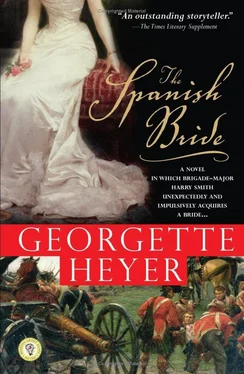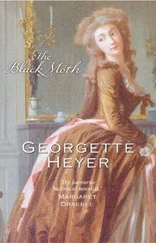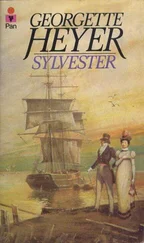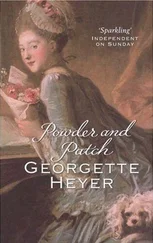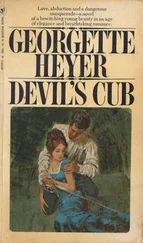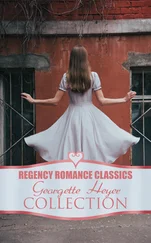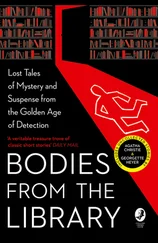Georgette Heyer - The Spanish Bride
Здесь есть возможность читать онлайн «Georgette Heyer - The Spanish Bride» весь текст электронной книги совершенно бесплатно (целиком полную версию без сокращений). В некоторых случаях можно слушать аудио, скачать через торрент в формате fb2 и присутствует краткое содержание. Год выпуска: 2011, Жанр: Исторические любовные романы, на английском языке. Описание произведения, (предисловие) а так же отзывы посетителей доступны на портале библиотеки ЛибКат.
- Название:The Spanish Bride
- Автор:
- Жанр:
- Год:2011
- ISBN:нет данных
- Рейтинг книги:3 / 5. Голосов: 1
-
Избранное:Добавить в избранное
- Отзывы:
-
Ваша оценка:
- 60
- 1
- 2
- 3
- 4
- 5
The Spanish Bride: краткое содержание, описание и аннотация
Предлагаем к чтению аннотацию, описание, краткое содержание или предисловие (зависит от того, что написал сам автор книги «The Spanish Bride»). Если вы не нашли необходимую информацию о книге — напишите в комментариях, мы постараемся отыскать её.
The Spanish Bride — читать онлайн бесплатно полную книгу (весь текст) целиком
Ниже представлен текст книги, разбитый по страницам. Система сохранения места последней прочитанной страницы, позволяет с удобством читать онлайн бесплатно книгу «The Spanish Bride», без необходимости каждый раз заново искать на чём Вы остановились. Поставьте закладку, и сможете в любой момент перейти на страницу, на которой закончили чтение.
Интервал:
Закладка:
Harry was amongst those who tried at first to curb the disorder. That he was not shot down by one of the privates of the 88th regiment was due not to any prudence on his own part, but to the intervention of a reeling Rifleman who recognized his Brigade-Major, and called for a cheer for him.
A dishevelled woman was embracing Harry’s knees; one or two soldiers fired their pieces in honour of the Brigade-Major; an individual, sitting astride a wine-barrel, and dressed in a priest’s cassock, a woman’s skirt, and a shako bearing the number-plate of the 95th regiment, drank a toast to him. The Brigade-Major swore at him, and was dragged off by one of his friends, before the humour of the men had had time to change. ‘It’s no good, Harry, it’s no good, and there’s work to be done at the breaches!’ Charles Beckwith said urgently. ‘None of us can stop this bloody sack! For God’s sake, let’s get out of the town!”
They were unable to get out, however, before drinking a cup from the barrel in the street. The motley creature astride it had a musket in his hand, and swore to shoot any man who refused to drink with him. Harry saw a nun being dragged, almost senseless, down the street, by a couple of redcoats, and tore himself out of Beckwith’s hold to go to the rescue. The demented woman, still clinging to his knees, detained him for long enough to allow the nun’s captors to drag her round the corner, and out of sight, and in so doing probably saved Harry’s life, since the two soldiers were mad-drunk, and already quarrelling with one another over their prize.
As the day wore on, the carnage in the town grew worse. Though the inhabitants locked their doors, and shuttered their windows, the soldiers burst into the houses. The graceful, outward-curving iron bars to ground-floor windows were wrenched out of their sockets; locks were blown in by musketry-fire; doors were torn off their hinges; traders were either flung out of their shops into the streets, or, if they resisted, spitted on bayonets, while the troops installed themselves behind the counters, and carried on a roaring trade between themselves, until the inevitable quarrel broke out, and all ended in naked steel, or the hasty discharge of a musket. No religious house was safe from the mob of savages that marauded through the town; nuns were as easy to get as prostitutes, and could be as well enjoyed, whether in the open market-place, or in the pillaged Churches, or in the reeking taprooms. From every house and shop soldiers issued, staggering under their loads of plunder. Nothing came amiss to men too drunk with wine and righting to discriminate between the valuable and the worthless. A man would cherish a wicker birdcage as jealously as a golden chalice from the Cathedral; and fight as bitterly for the possession of a copper cooking-pot as for the necklace torn from some woman’s neck. Many of them, who had entered the town in singed and rent uniforms, were to be seen lurching about in the oddest of costumes: female dress, priestly vestments, or the grandeur of a hidalgo’s wardrobe.
The camp-followers, women of almost every nationality, who had been amongst the first to enter the town at daybreak, were like a swarm of vultures. Indifferent to everything but plunder, they stripped the dead on the ramparts, rifled the pockets of men too badly wounded to do more than moan their ceaseless appeals for water, and even trod over the mounds of slain and wounded in their haste to get into the town. Once in, they drank as freely as their protectors, and showed an even more horrible rapacity. About two hundred of them took part in the sack; they were to be seen in all the streets, questing harpies who did not scruple to drag girls out of hiding-places for the soldiers to make merry with, while they, business-like even in drink, possessed themselves of the trinkets, and even the torn dresses of their victims.
Here and there, in the midst of this scene of unbridled license, an officer’s cocked-hat was occasionally to be seen, its owner trying to escort parties of terrified women to safety. Sometimes he would succeed, quite a number of the men still retaining a hazy respect for their superiors, and responding to the voice of authority. But there was very little the officers could do when their men faced them with a red, brutish glow in their eyes, and swore they would shoot any man down who stood in their way. Most of them retired to the camp, outside the town, or busied themselves with collecting as many of their men as seemed the least drunk, kicking or dowsing them into comparative sobriety, and forcing them to carry away the wounded from the breaches and the bastions.
A brilliant day had succeeded the clouded night; the sun beat down upon the old walls, and the plaster-coated houses; and from the ditch where the dead lay in heap upon heap, a faint, growing stench of putrefaction began to rise like an unhealthy miasma. Quartermaster Surtees had got a party of decent men together, and had been at work dragging the wounded out from under the dead ever since dawn. Harry was there too, of course, with his brother Brigade-Major, Charles Beckwith; old Dr Burke, whom every man in the Light division loved, was there, heartening the worst cases by his loud, cheerful bullying, all the time the tears were pouring down his cheeks. Stretcher-parties, some sober, some too drunk to carry their burdens without stumbling over inequalities in the ground, were employed in carrying the wounded men to the rear. Some of these died before they reached the camp; some, their hurts roughly bound up in the ditch, were tipped off the stretchers by the clumsiness of the bearers, and started bleeding copiously again. Now that the sunlight disclosed the results of the night’s struggle at the breaches, men who had borne their part in it looked on the scene with horrified eyes. The carnage was more frightful even than they had known, the dead so numerous that they looked like wooden soldiers spilled out of a child’s toy-chest-those of them who had not been stripped naked, and left in strange, sprawling attitudes to fester in the ditch.
George Simmons found Major O’Hare thus, upon the breach, shot through the chest by musket-balls that had torn great gashes in his flesh. He had volunteered to lead the storming-party, and had been almost the first to fall. He lay beside Sergeant Fleming, who had always been with him. They were both dead, and George, composing their twisted limbs, and drawing down the lids over their dreadfully glaring eyes could not help shedding a few tears. ‘A Lieutenant-Colonel or cold meat in a few hours!’ O’Hare had said last night, shaking George’s hand before he went off to lead the advance.
Well, he was cold meat, like Stokes, and Crampton, and Balvaird, and McDermid, like the hundreds of rank-and-file who lay piled up at the foot of the breach, in a fantastic, incredible mound. George brushed away the tear-drops, rejecting with the detachment of those who had fought in many engagements and had learned to look upon the loss in battle of friends as passing griefs, sharp yet soon over, that it was a bad soldier who mourned the dead over long, as bad a soldier as the man who dwelt on the chances of his own death. A friend was killed, and one wept over him; but soon, one would find another friend, not dead but miraculously alive, and a spring of gladness would make one forget the first sorrow. Such a spring George felt when he saw Harry presently. His honest face grew lighter, its dejection vanished in a beaming smile. He grasped Harry’s hand, ejaculating: “Thank God! You’re safe! Well done, old fellow!’
‘If only we had carried it!’ Harry said, casting a fierce, hungry look upwards at the breach. ‘Never mind, they’re all saying it was our attacks that made it possible for Leith’s and Picton’s fellows to break in. And Johnny’s safe too, and dear old Charlie Beckwith! Oh, but Harry, though there’s no denying we are The Division, it makes one’s heart swell, indeed it does, to think of those noble fellows of Picton’s scaling the Castle-hill as they did! And the Pioneers, too, winning the river-bastion, with everyone ready to swear they must fail!’ ‘Yes!’ Harry said, kindling with ready enthusiasm. ‘Noble fellows, all of them, and the bloodiest, most glorious action, George! By God, I would fight every one of our battles again, but not this one!’
Читать дальшеИнтервал:
Закладка:
Похожие книги на «The Spanish Bride»
Представляем Вашему вниманию похожие книги на «The Spanish Bride» списком для выбора. Мы отобрали схожую по названию и смыслу литературу в надежде предоставить читателям больше вариантов отыскать новые, интересные, ещё непрочитанные произведения.
Обсуждение, отзывы о книге «The Spanish Bride» и просто собственные мнения читателей. Оставьте ваши комментарии, напишите, что Вы думаете о произведении, его смысле или главных героях. Укажите что конкретно понравилось, а что нет, и почему Вы так считаете.
